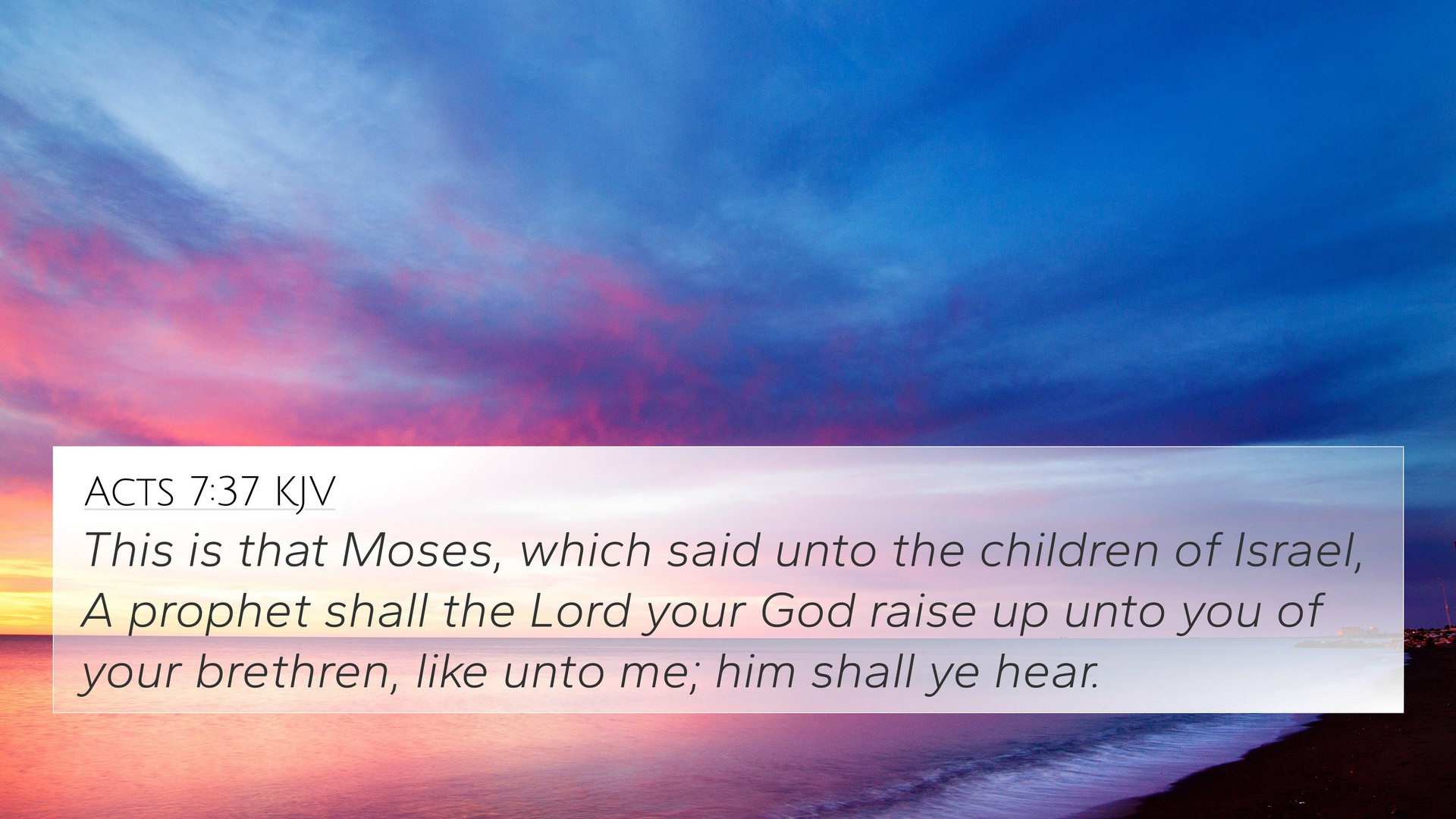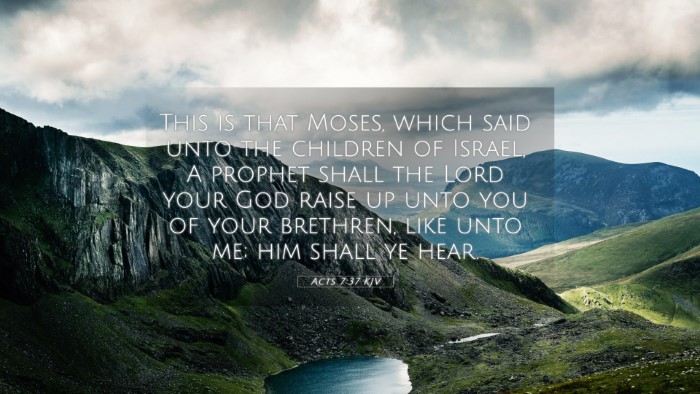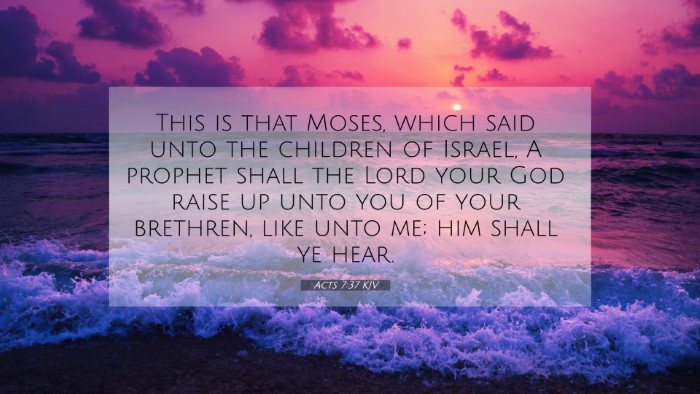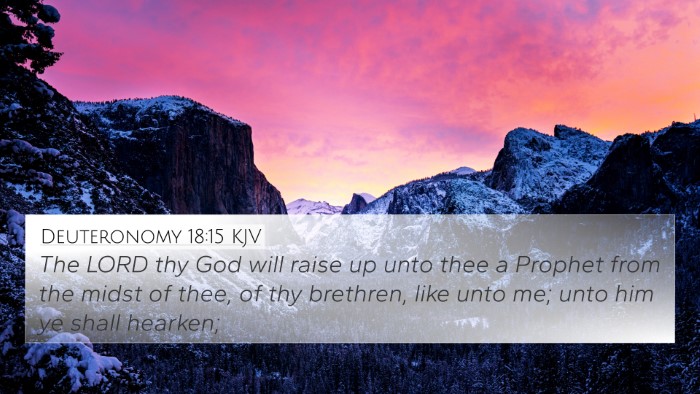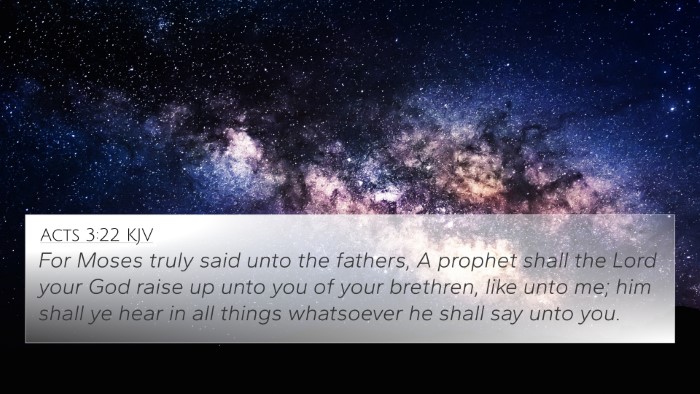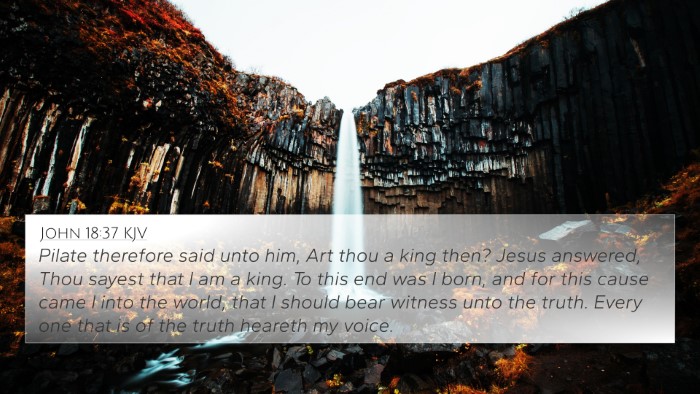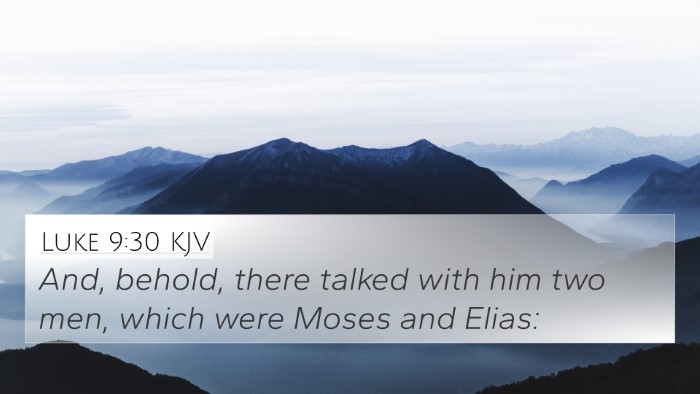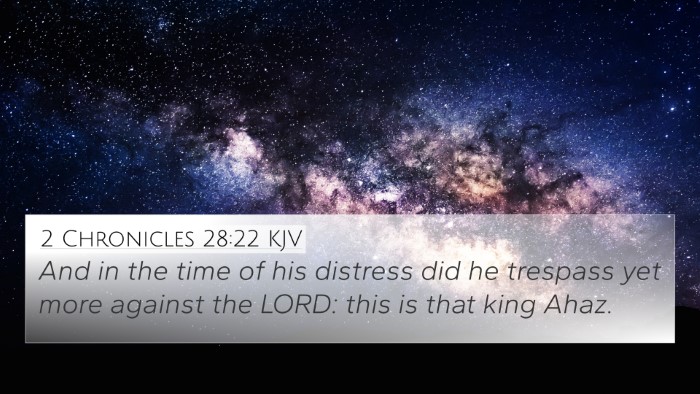Understanding Acts 7:37
Verse: "This is that Moses, which said unto the children of Israel, A prophet shall the Lord your God raise up unto you of your brethren, like unto me; him shall ye hear." - Acts 7:37
General Overview
Acts 7:37 serves as a pivotal reference to the prophetic promise of Moses, linking the Old Testament to the New Testament narrative concerning Jesus Christ. This verse underscores the role of Moses not merely as a leader but also as a prophet who foretold the coming of a greater prophet.
Commentary Insights
Matthew Henry's Commentary
Henry emphasizes Moses' position as a type of Christ, suggesting that just as Moses delivered the Israelites from physical bondage, Christ would deliver humanity from spiritual bondage. This prophecy indicates the continuity of God's plan through generations, highlighting the significance of listening to God's chosen messenger.
Albert Barnes' Notes
Barnes remarks that this verse is a direct reference to Deuteronomy 18:15, where Moses assures the Israelites that God will raise up a prophet like him. It signifies that the coming prophet will be a fulfillment of Mosaic prophecy, thereby linking the expectation of a Messiah directly to the teachings of Moses.
Adam Clarke's Commentary
Clarke draws attention to the implications of Moses’ prophecy. He notes that the assertion of a prophet coming 'of your brethren' signifies not just any leader, but one rooted in the Jewish lineage, akin to Christ’s own lineage. This establishes a deep connection between Moses' message and Jesus' mission, implying that rejecting Christ equates to rejecting this foundational prophecy.
Cross-Referenced Verses
Acts 7:37 connects with several other Bible verses that enhance its meaning and significance:
- Deuteronomy 18:15: "The Lord your God will raise up for you a prophet like me from among you, from your brethren—it is to him you shall listen." This is the original prophecy Moses referenced.
- John 1:45: "Philip found Nathanael and said to him, 'We have found him of whom Moses in the Law and also the prophets wrote, Jesus of Nazareth, the son of Joseph.'" This shows the fulfillment of Moses' prophecy in the person of Christ.
- Acts 3:22: "For Moses said, 'The Lord will raise up for you a prophet like me from your brethren. You shall hear him in all things, whatever he says to you.'" Reinforces the expectation of a prophet in the early church.
- Hebrews 3:5-6: "And Moses indeed was faithful in all his house as a servant, for a testimony of those things which would be spoken afterward; but Christ as a Son over His own house..." Illustrates the superiority of Christ over Moses.
- Malachi 4:5-6: "Behold, I will send you Elijah the prophet before the coming of the great and dreadful day of the Lord." This hints at prophetic roles leading up to Christ.
- Matthew 17:5: "While he was still speaking, behold, a bright cloud overshadowed them; and suddenly a voice came out of the cloud, saying, 'This is My beloved Son, in whom I am well pleased. Hear Him!'" This divine endorsement of Christ reflects the essence of Moses’ prophecy.
- Luke 24:27: "And beginning at Moses and all the Prophets, He expounded to them in all the Scriptures the things concerning Himself." A confirmation that Moses spoke of Christ throughout his teachings.
Thematic Connections
The connections between Acts 7:37 and other scriptural texts underscore themes of prophecy, covenant, and fulfillment in the biblical narrative. These thematic Bible verse connections reveal how the Old Testament foreshadows significant events and figures in the New Testament, especially in relation to Christ's mission.
Conclusion
Through the comparative Bible verse analysis of Acts 7:37 and its related scriptures, we see how the entire biblical narrative is interconnected. Cross-referencing Biblical texts illuminates the continuity of God's redemptive plan and provides tools for deeper understanding in Bible study. Engaging with these verses facilitates a more comprehensive grasp of themes such as prophecy, obedience to God's voice, and the fulfillment of the law through Christ.
